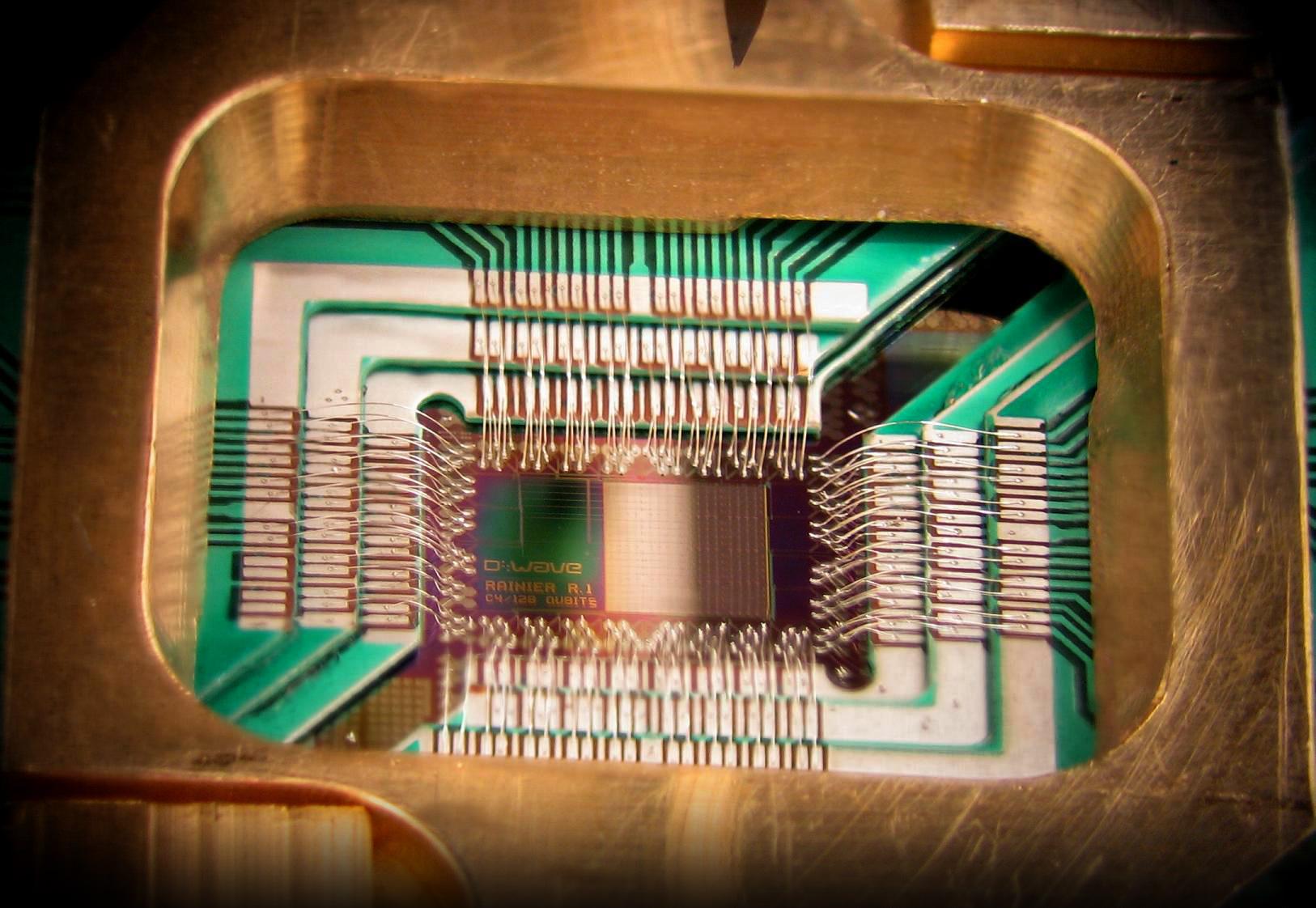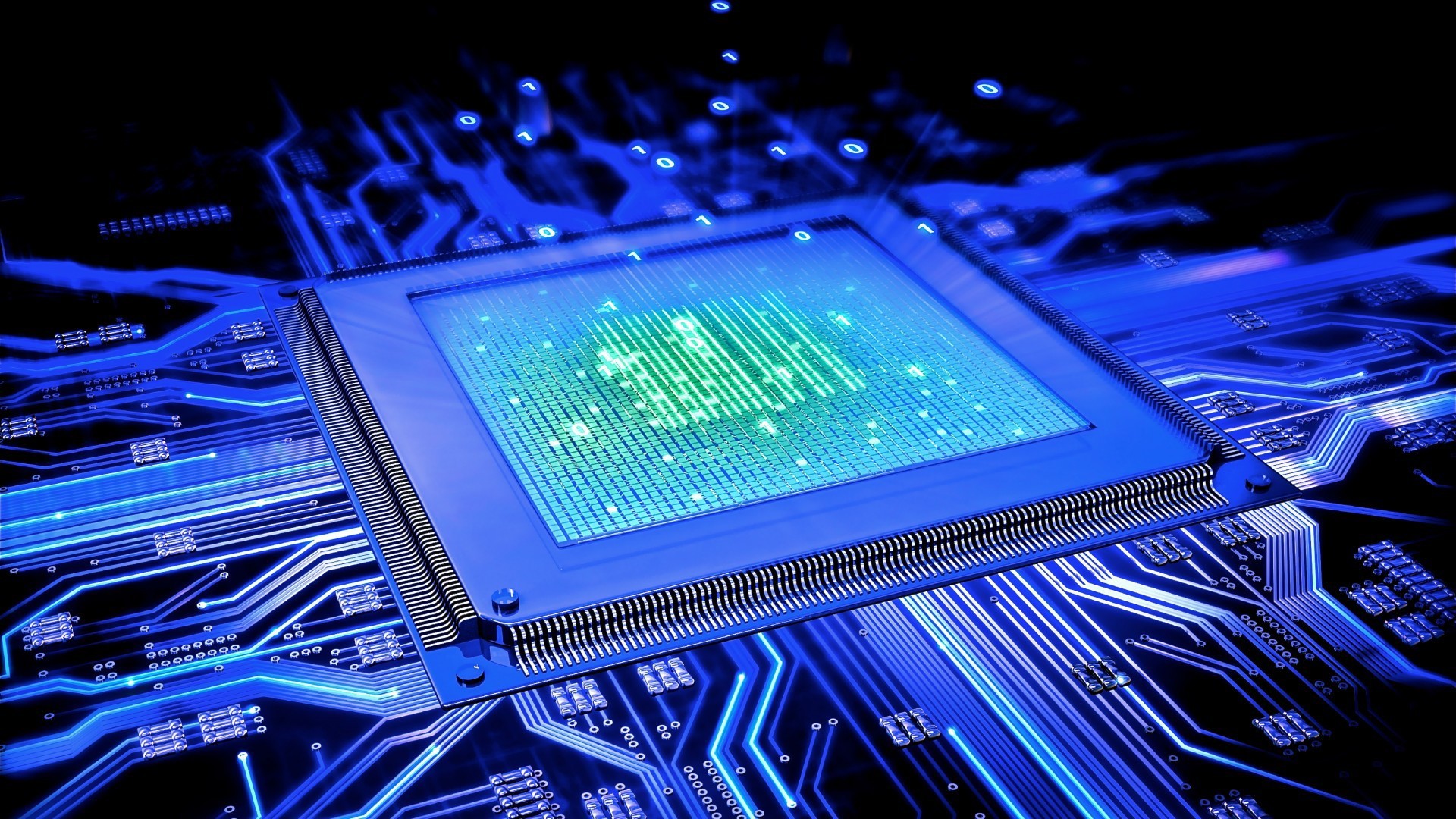A little bit about quantum computers and whether they will change our lives
Many of us have heard about a quantum computer, but not everyone knows what it is, and most importantly, what tasks can be solved with it. For several years now, the quantum computer has been actively studying the best minds in the world; he even appeared on the cover of Time magazine, with the caption: "He promises to solve some of the most complex problems of humanity, while no one knows how it actually works."

Now, computers are being researched by many scientists and large companies such as Google, IBM, Microsoft and others. According to them, if such a computer can still be created, then this will be a real breakthrough, comparable to the discovery of classic computers.
A quantum computer is a computing device that works on the principles of quantum mechanics, which can rightfully be called the most complex section of physics. Quantum mechanics was born at the beginning of the 20th century, and is studying the behavior of quantum systems and its elements. A quantum particle can be in several places and states at the same time, therefore, by definition, quantum mechanics completely contradicts the general theory of relativity. But let's not delve into science, but back to our main topic - a quantum computer.
At the beginning of the century, it turned out that the use of electrical circuits to create computing devices has its limits, and all of them have practically been achieved. Now mankind is faced with ever new tasks for which classical computers will not be enough. The simplest example of such a problem is the factorization of large numbers. Most cryptographic systems have been built for this purpose. This will seem commonplace, but if someone could quickly decompose a large number into prime factors, then transactions in all banks in the world would become available to him.
Another equally important task that modern computers can never cope with is the modeling of quantum systems and DNA molecules. Based on this, we can conclude that the creation of quantum computers is a very promising solution that will solve these and many other problems.

A classic computer is based on transistors and silicon chips, which use binary code consisting of zeros and ones to process information. A bit, as the smallest unit of information, has two basic states: 1 and 0. Changes to these states can be easily controlled: objects can either be in a specific place or not. That is why many physical objects of the external world can be transferred to the virtual using complex combinations of bits. The work of a quantum computer will be based on the principle of superposition, and instead of bits, qubits (quantum bits) will be used, which can simultaneously be in all kinds of states (at 1 and 0 at the same time). According to scientists, due to this, quantum computers for certain classes of tasks will be millions of times more powerful than current ones.algorithms of a quantum computer, even special programming languages are being developed.
By and large, the world has been using quantum technology for a long time. Lasers, tomographs, and supersensitive microscopes are based on mass effects created by large groups of quantum particles or waves that obey the laws of quantum mechanics. The main task is to use these effects for individual particles, and not for groups as a whole.

While scientists are working on a quantum computer, they are simultaneously looking for an application for it. The main thing is the fact that such a computer can instantly make calculations and work with a large amount of data.
With the help of quantum computers, many processes can be optimized: from medicine to mechanical engineering. For example, people will have the opportunity to diagnose cancer at an earlier stage, or to do more complex autopilots. As mentioned earlier, using a quantum computer it will be possible to quickly factor out large numbers and simulate DNA molecules. There is also a theory that a quantum computer will cope with tasks that a conventional computer is unable to solve or spend thousands of years of computing on this. This, for example, is the creation of artificial intelligence or the search for intelligent creatures in the Universe, except for man. In any case, all scientists agree that this creation of such a computer will be a real breakthrough, perhaps the main one in the history of mankind.

Errors in quantum computers can be divided into two main levels. Errors of the first level are inherent in all computers, including classic ones. Such errors include the involuntary change of qubits due to external noise (for example: cosmic rays or radiation). This problem has recently managed to cope professionals from Google. To solve this problem, a team of scientists led by Julian Kelly created a special quantum scheme of nine qubits that are looking for errors in the system. The remaining qubits are responsible for the safety of information, thus preserving it longer than using a single qubit. However, the main problem has not gone away, the second level of errors remains.
The qubits are inherently unstable by nature, they instantly forget the information that you want to save to a quantum computer. Under the influence on the qubit of the environment, the connection inside the quantum system is broken (decoherence process). To get rid of this, the quantum processor must be isolated as much as possible from the influence of external factors. How to do it? - while remains a mystery. According to experts, 99% of the power of such a computer will go to correct errors, and only 1% is enough to solve any problems. Of course, errors cannot be completely eliminated, but if you minimize them to a certain level, the quantum computer will be able to work.

It is now very difficult to answer this question - it is almost impossible. News about breakthroughs in this area appears regularly, but it cannot be said that they are global. Everyone is interested in creating quantum computers: from the military to technology companies. D-Wawe, which Google and NASA is actively collaborating with, claims to have created a processor with 84 qubits, but critics who analyzed it said it works like a classic. Several years ago, IBM announced that they had created a chip with three qubits, and Microsoft has been thoroughly developing quantum computers since 2007.
According to the forecast of researchers from Cisco Systems, a full-fledged working quantum computer will appear by the middle of the next decade, and will be comparable in power to the human brain. In any case, the problem of developing new perfect computers will be relevant until humanity learns to correct second-level quantum errors. If this ever happens, then only a few years will remain before the creation of a working quantum computer.

Now, computers are being researched by many scientists and large companies such as Google, IBM, Microsoft and others. According to them, if such a computer can still be created, then this will be a real breakthrough, comparable to the discovery of classic computers.
Quantum computer and insurmountable difficulties
A quantum computer is a computing device that works on the principles of quantum mechanics, which can rightfully be called the most complex section of physics. Quantum mechanics was born at the beginning of the 20th century, and is studying the behavior of quantum systems and its elements. A quantum particle can be in several places and states at the same time, therefore, by definition, quantum mechanics completely contradicts the general theory of relativity. But let's not delve into science, but back to our main topic - a quantum computer.
At the beginning of the century, it turned out that the use of electrical circuits to create computing devices has its limits, and all of them have practically been achieved. Now mankind is faced with ever new tasks for which classical computers will not be enough. The simplest example of such a problem is the factorization of large numbers. Most cryptographic systems have been built for this purpose. This will seem commonplace, but if someone could quickly decompose a large number into prime factors, then transactions in all banks in the world would become available to him.
Another equally important task that modern computers can never cope with is the modeling of quantum systems and DNA molecules. Based on this, we can conclude that the creation of quantum computers is a very promising solution that will solve these and many other problems.
The principle of operation of a quantum computer

A classic computer is based on transistors and silicon chips, which use binary code consisting of zeros and ones to process information. A bit, as the smallest unit of information, has two basic states: 1 and 0. Changes to these states can be easily controlled: objects can either be in a specific place or not. That is why many physical objects of the external world can be transferred to the virtual using complex combinations of bits. The work of a quantum computer will be based on the principle of superposition, and instead of bits, qubits (quantum bits) will be used, which can simultaneously be in all kinds of states (at 1 and 0 at the same time). According to scientists, due to this, quantum computers for certain classes of tasks will be millions of times more powerful than current ones.algorithms of a quantum computer, even special programming languages are being developed.
By and large, the world has been using quantum technology for a long time. Lasers, tomographs, and supersensitive microscopes are based on mass effects created by large groups of quantum particles or waves that obey the laws of quantum mechanics. The main task is to use these effects for individual particles, and not for groups as a whole.
What is a quantum computer for?

While scientists are working on a quantum computer, they are simultaneously looking for an application for it. The main thing is the fact that such a computer can instantly make calculations and work with a large amount of data.
With the help of quantum computers, many processes can be optimized: from medicine to mechanical engineering. For example, people will have the opportunity to diagnose cancer at an earlier stage, or to do more complex autopilots. As mentioned earlier, using a quantum computer it will be possible to quickly factor out large numbers and simulate DNA molecules. There is also a theory that a quantum computer will cope with tasks that a conventional computer is unable to solve or spend thousands of years of computing on this. This, for example, is the creation of artificial intelligence or the search for intelligent creatures in the Universe, except for man. In any case, all scientists agree that this creation of such a computer will be a real breakthrough, perhaps the main one in the history of mankind.
Bug Fixes - The Main Problem of Quantum Computers

Errors in quantum computers can be divided into two main levels. Errors of the first level are inherent in all computers, including classic ones. Such errors include the involuntary change of qubits due to external noise (for example: cosmic rays or radiation). This problem has recently managed to cope professionals from Google. To solve this problem, a team of scientists led by Julian Kelly created a special quantum scheme of nine qubits that are looking for errors in the system. The remaining qubits are responsible for the safety of information, thus preserving it longer than using a single qubit. However, the main problem has not gone away, the second level of errors remains.
The qubits are inherently unstable by nature, they instantly forget the information that you want to save to a quantum computer. Under the influence on the qubit of the environment, the connection inside the quantum system is broken (decoherence process). To get rid of this, the quantum processor must be isolated as much as possible from the influence of external factors. How to do it? - while remains a mystery. According to experts, 99% of the power of such a computer will go to correct errors, and only 1% is enough to solve any problems. Of course, errors cannot be completely eliminated, but if you minimize them to a certain level, the quantum computer will be able to work.
How close is humanity to creating quantum computers?

It is now very difficult to answer this question - it is almost impossible. News about breakthroughs in this area appears regularly, but it cannot be said that they are global. Everyone is interested in creating quantum computers: from the military to technology companies. D-Wawe, which Google and NASA is actively collaborating with, claims to have created a processor with 84 qubits, but critics who analyzed it said it works like a classic. Several years ago, IBM announced that they had created a chip with three qubits, and Microsoft has been thoroughly developing quantum computers since 2007.
According to the forecast of researchers from Cisco Systems, a full-fledged working quantum computer will appear by the middle of the next decade, and will be comparable in power to the human brain. In any case, the problem of developing new perfect computers will be relevant until humanity learns to correct second-level quantum errors. If this ever happens, then only a few years will remain before the creation of a working quantum computer.
